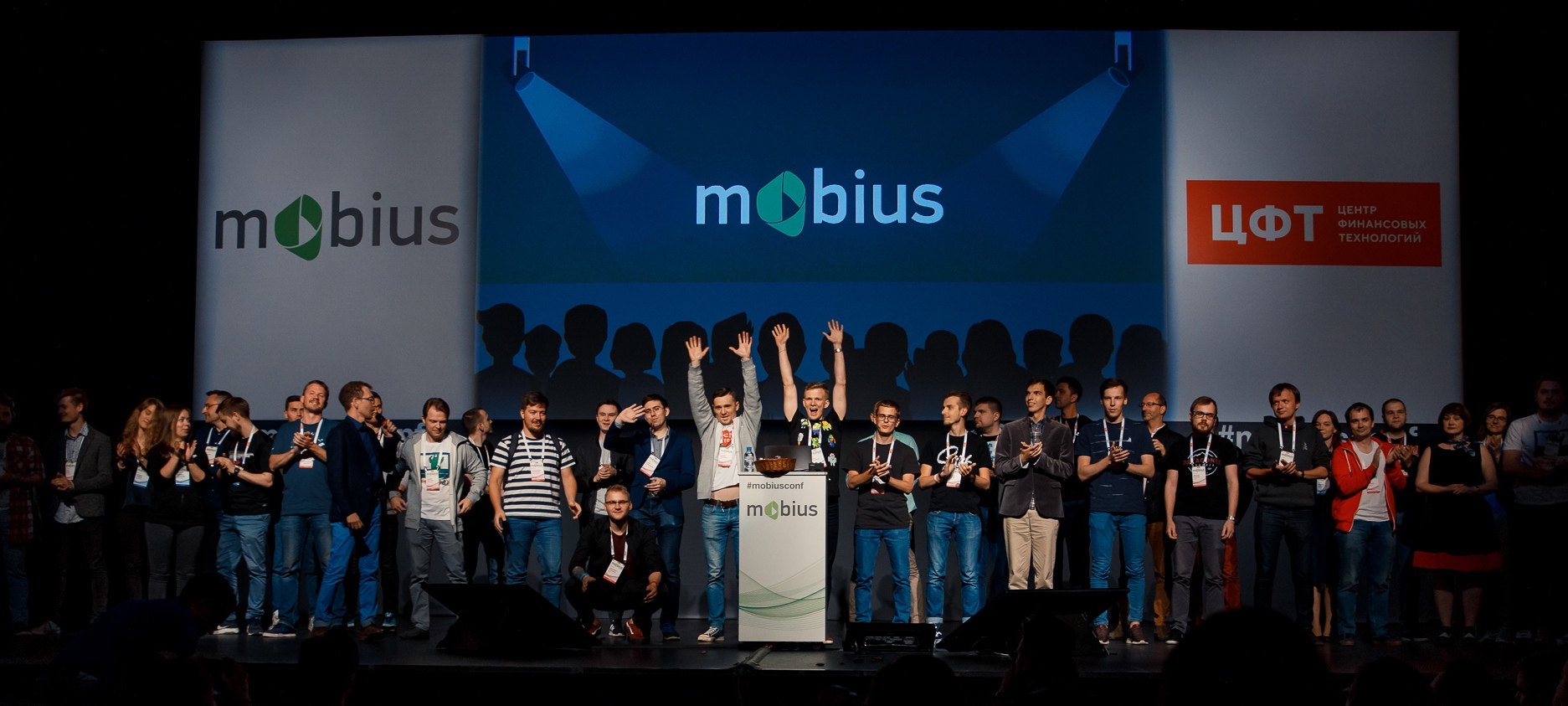How was the Mobius 2019 Piter (and a little bit about the next Mobius)
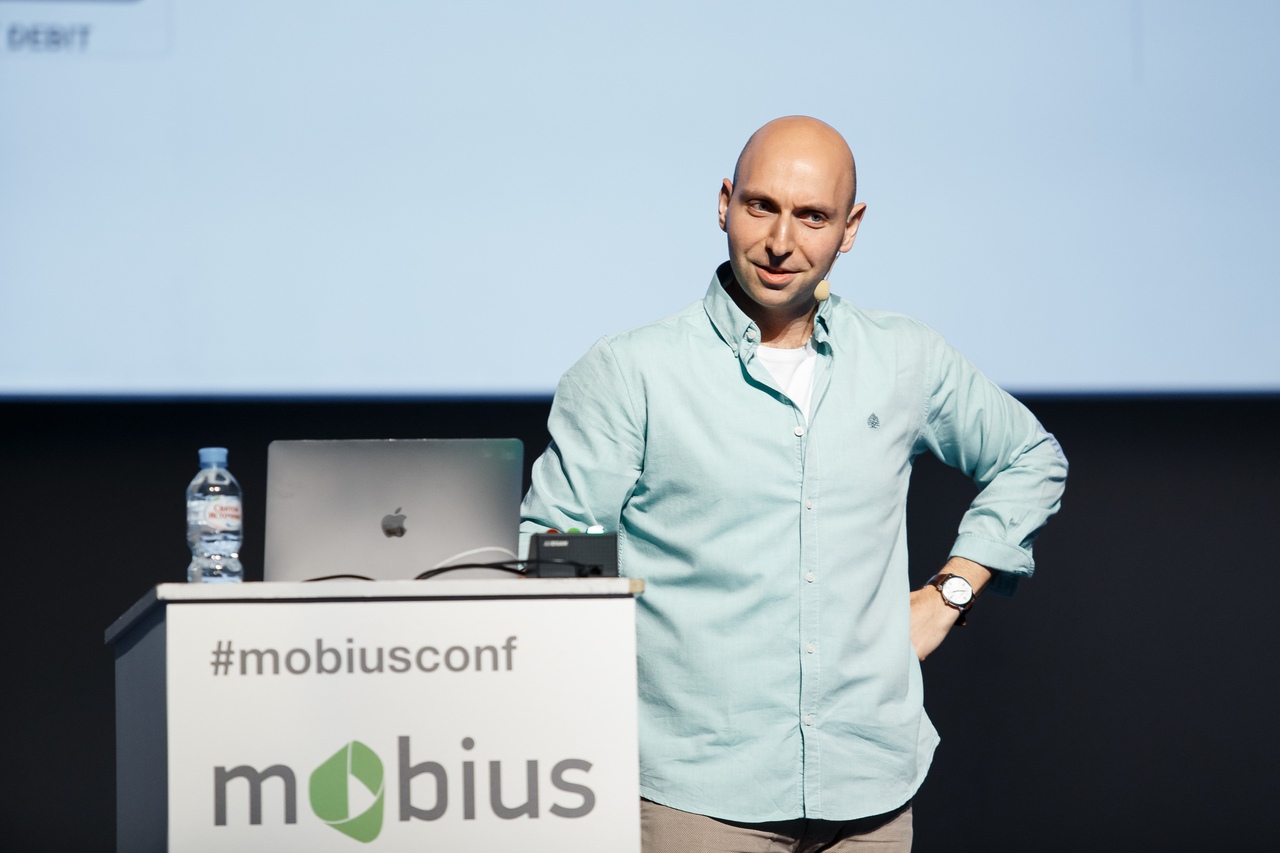
It has been a month already since Mobius from St. Petersburg , and we are just now summing up. But if the conference ends for the participant by filling out the feedback form, then for the organizers everything is different: you still have to wait for all the responses, analyze them and draw conclusions for the future. So instead of racing for a quick publication, we first sorted it out properly, which the audience really liked.
But the conference for the organizers begins very early, and during the May St. Petersburg Mobius we were already thinking about the December Moscow in full swing . Therefore, in this post we not only recall the past, but also look into the future.
Reports
The whole program of the two-day conference can not be retold. But let's name five performances that the audience really liked:
- Andrei Breslav previously spoke at Mobius with tremendous success, telling then how other languages affected Kotlin. But this time he was talking about something completely different: a keynote opened the conference on how developers should approach their and other people's emotions in order to work best. And he also worked here with his own emotions, starting with his appearance: “Usually I’m very worried about how I look, so I specially decided to put on stupid ears and notice that nothing has changed.”
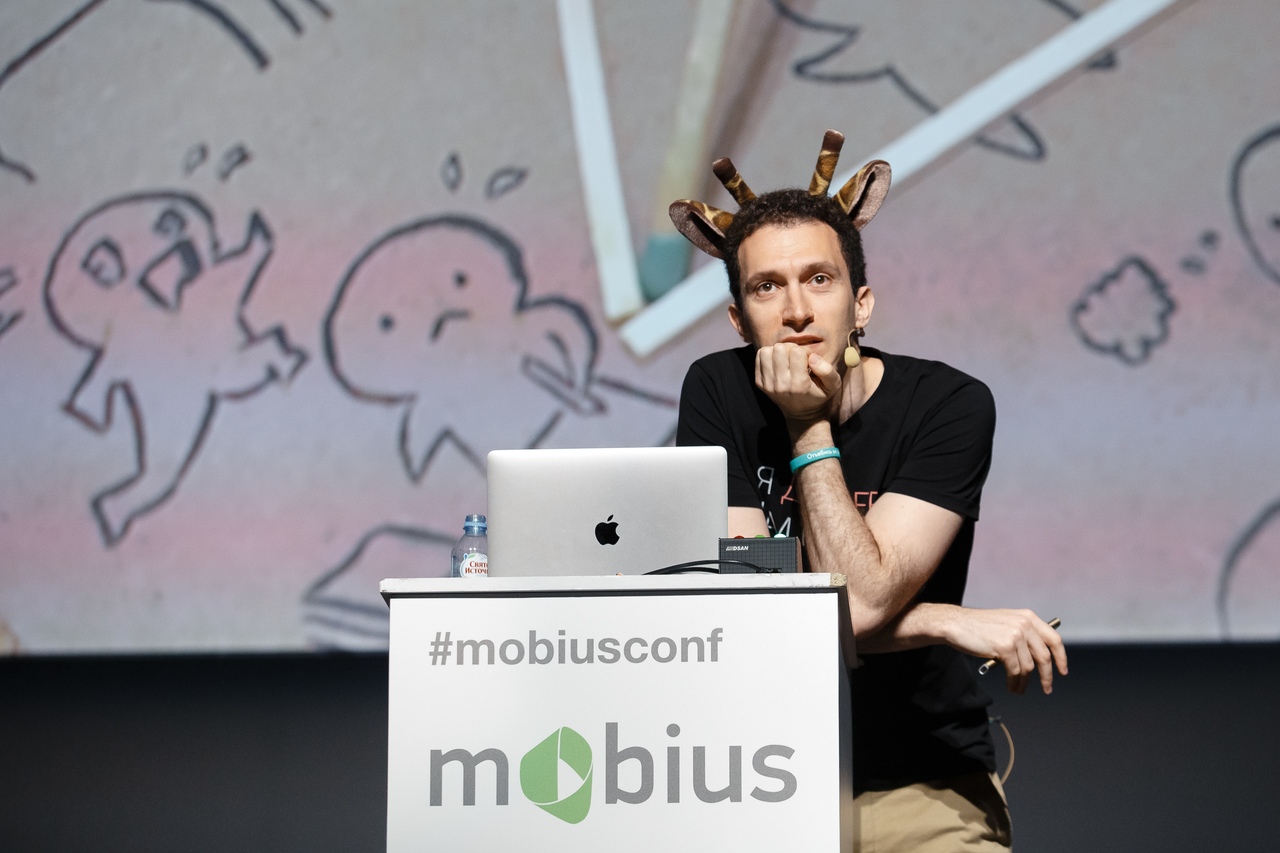
For many, the surname "Breslav" has become almost a synonym for "Kotlin", and then suddenly there was a speech without this name at all, so it was not obvious: how would they accept him? The reviews showed that the developers liked this role too.
On the first day of Mobius, we had a free broadcast of the first room. Therefore, Andrei’s performance can be watched for yourself, it is available to the whole world. - Of course, accessibility is an important topic, but usually not provoking enthusiastic. Yes, and, it would seem, everything that is possible has already been said about her. Therefore, from a report by John Fox (Netflix) about Accessibility for iOS, one could expect that the reviews will also do without enthusiasm: they say, well, yes, you should think about it all, thanks for the information.
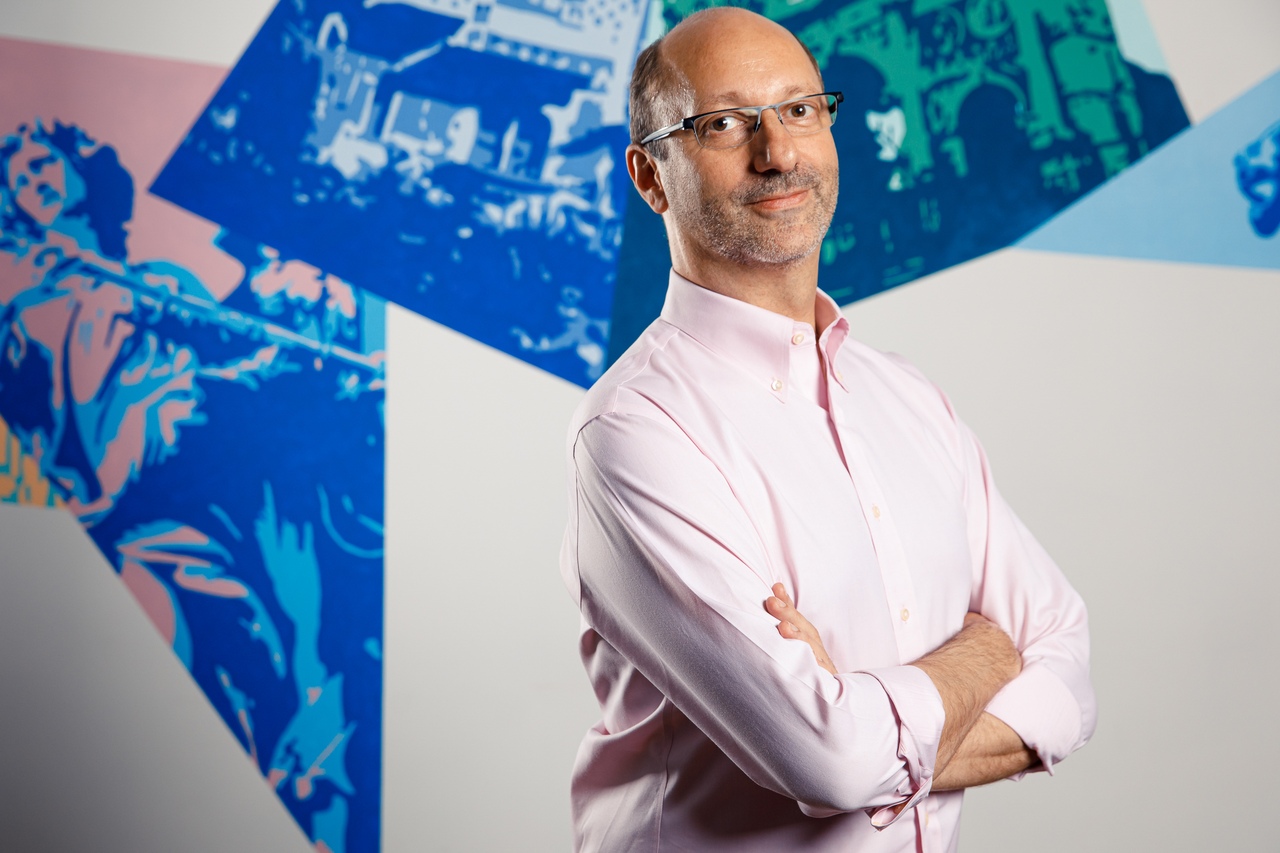
But it turned out that when the speaker is quite charming and passionate about his topic, this changes things: there were not very many viewers on the report, but he received excellent ratings. And later, John also performed vividly at the BoF session, remembered by many there. - It turned out interestingly with Stepan Goncharov . Initially, in the case of him, one topic of the report was considered, and when there was relatively little time before the conference, it was replaced by “Optimization of Gradle Pipelines”. But in the end, the report did not leave a feeling of something hastily blinded, but got into the top 5. And he also got into the open broadcast - so you can already see it yourself.
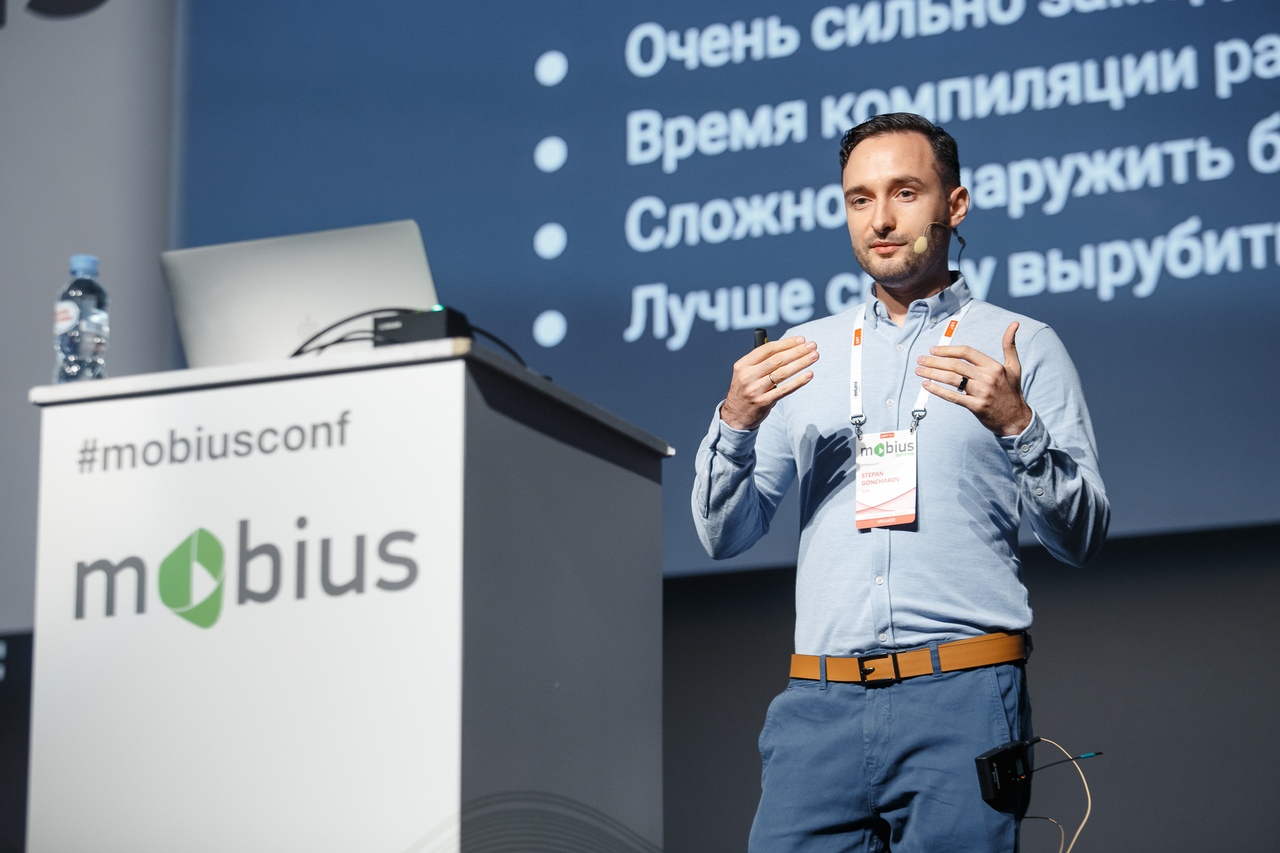
- The famous android guide Jonathan Levin (Monday.com) is more predictable. Last time, he climbed “under the hood”, figuring out why D8 and R8 were needed - and got into the top reports. I also turned to this one, “how it really works there,” but now I looked at the memory and again got excellent marks.
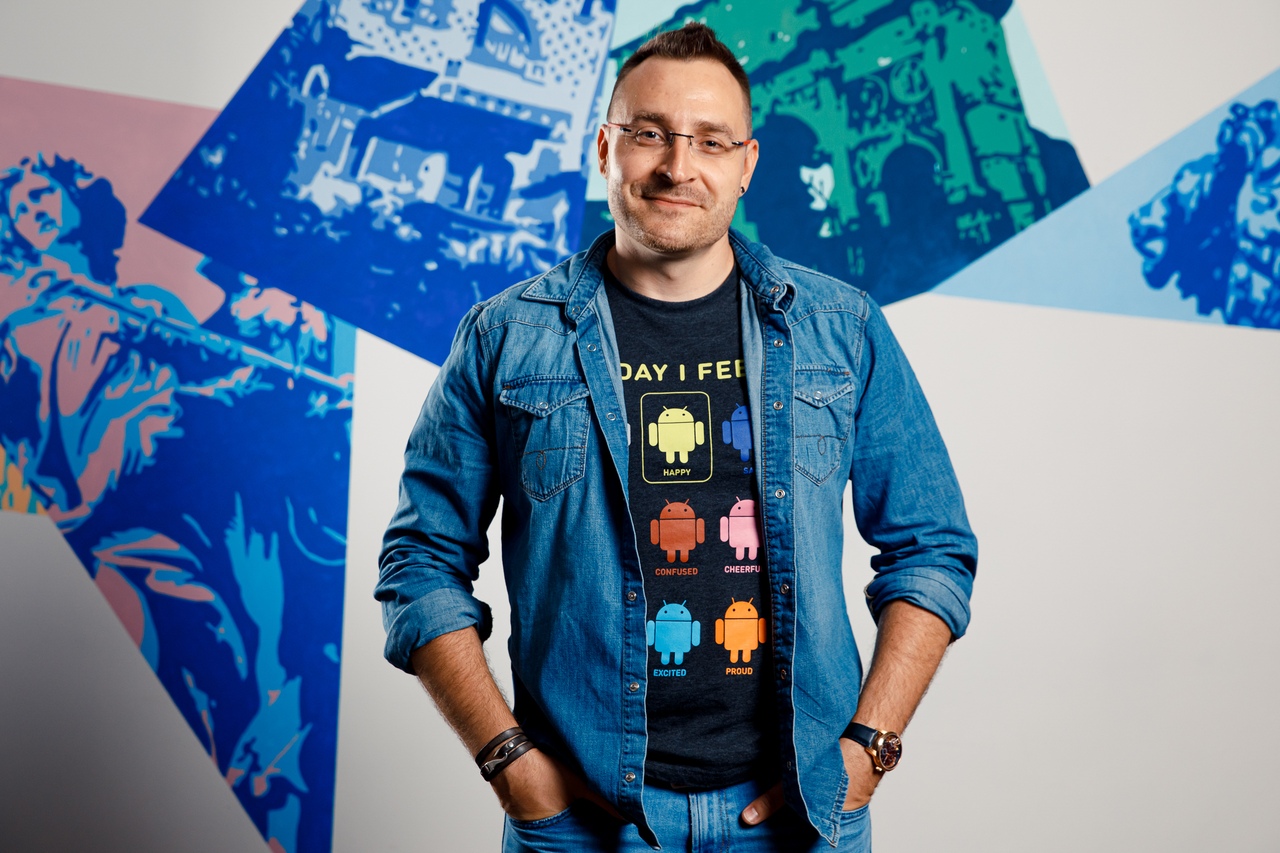
It’s not that some surprising discoveries were made in the report - theoretically, the same can be learned without Jonathan. But if you haven’t figured out this topic yourself before, then it’s great to get information in an accessible version from the charismatic speaker in an hour. And for everyone who was not at the report, here is one small piece of advice from it: LeakCanary helps to search for memory leaks . - You can remember the competition for the “worst UX volume knobs” - there were a lot of very funny options. But Vitaly Fridman (Smashing Magazine) is familiar with interfaces that look just as wild, but at the same time are taken seriously. Indicate the number of children using the slider? Which has a maximum value? To whom and how did it come to mind? But how do we do it right instead?
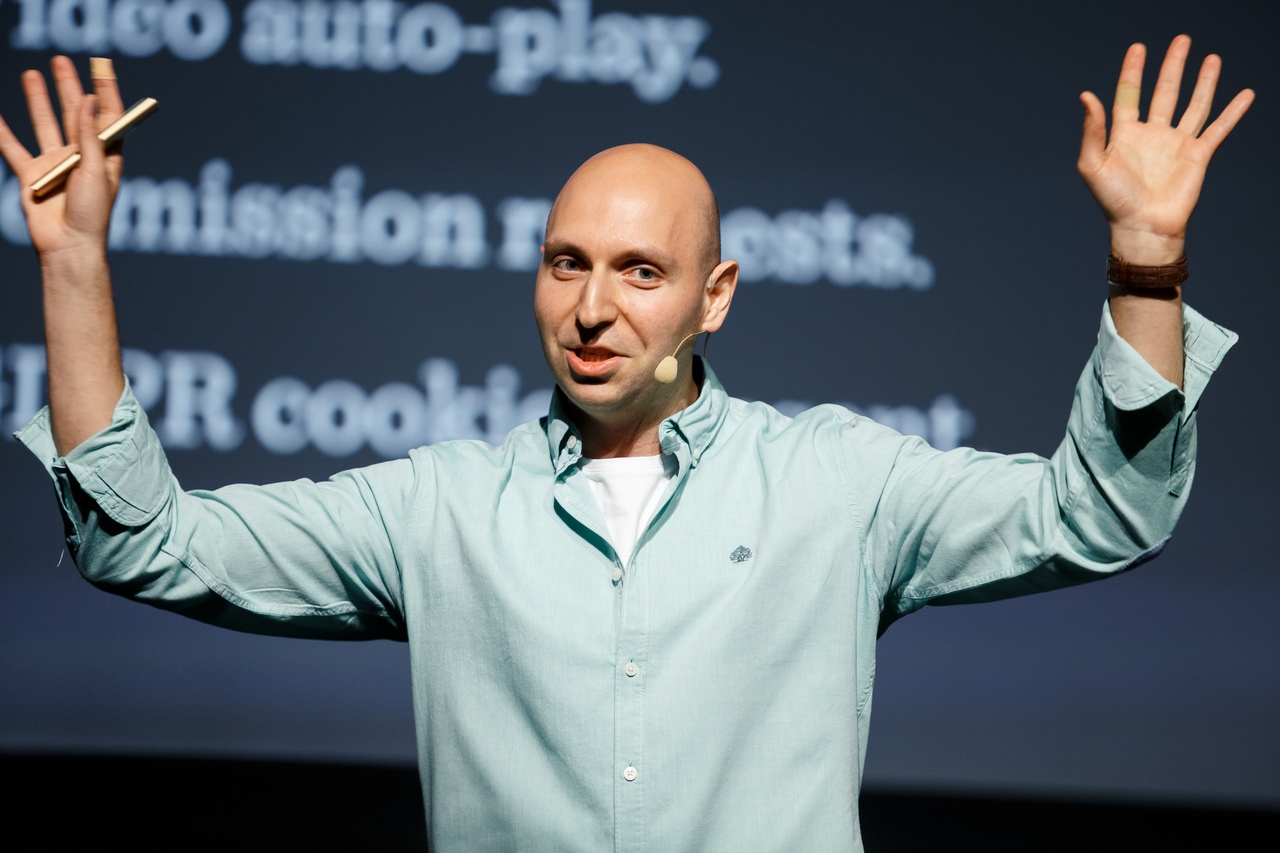
In general, in this report on interfaces, the examples are so colorful that you involuntarily think “why all this did not become supervirus and I did not see it”. And Vitaly himself is so charming that no one can resist: he spoke at our other events and before the front-end, and the testers, and the ratings always turned out to be high. - And who became the leader of the audience rating conference? It depends on how you count: look only at the report’s ratings, or take into account the number of spectators gathered.
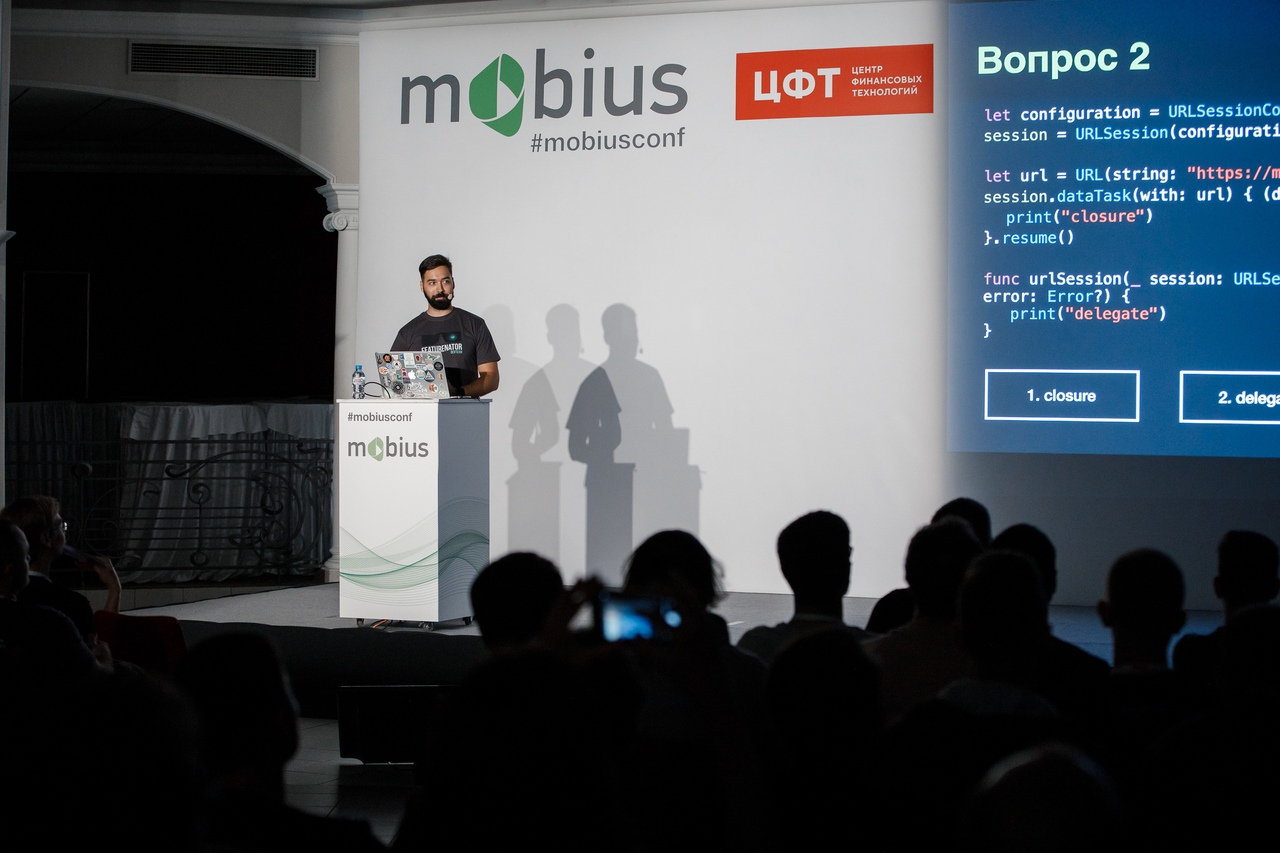
Evgeny Rtishchev
In the first case, the conference’s favorite is Evgeny Rtishchev (Sberbank) with the iOS-report “We work with the network efficiently”. And in the second, adjusted for the size of the audience - Denis Neklyudov (Lyft), telling on the basis of Lyft's experience how to make architecture “grow”.
And in the case of Denis, we get an interesting continuity: six months earlier at the previous Mobius, the leader was a report by Artyom Zinnatullin , who also relied on Lyft's experience to draw conclusions that were useful to everyone - but there it was not about architecture, but about assembly tools.
In addition to reports
What else could be seen at the conference?
As usual, each report was followed by a conversation with a speaker in the discussion area, where you could ask him how everything should be asked. That is, if someone had a question for Andrei Breslav about Kotlin, then there was an opportunity to ask him, despite the other topic of the report. By the way, it is not surprising that a lot of people gathered around Andrei in the discussion area:

Another traditional component was BoF sessions - discussions of pressing issues in which everyone was interested. This time, they were discussing in an English-language session (where there were English-speaking speakers) what would happen to mobile development in 5 years, and in Russian they talked about the salaries of mobile developers.
The English-language BoF session was interesting (for example, the already mentioned John Fox vividly participated and joked), but the main heat was in Russian. There, a discussion of monetary issues with the participation of Jonathan Levin and Denis Neklyudov went something like this:
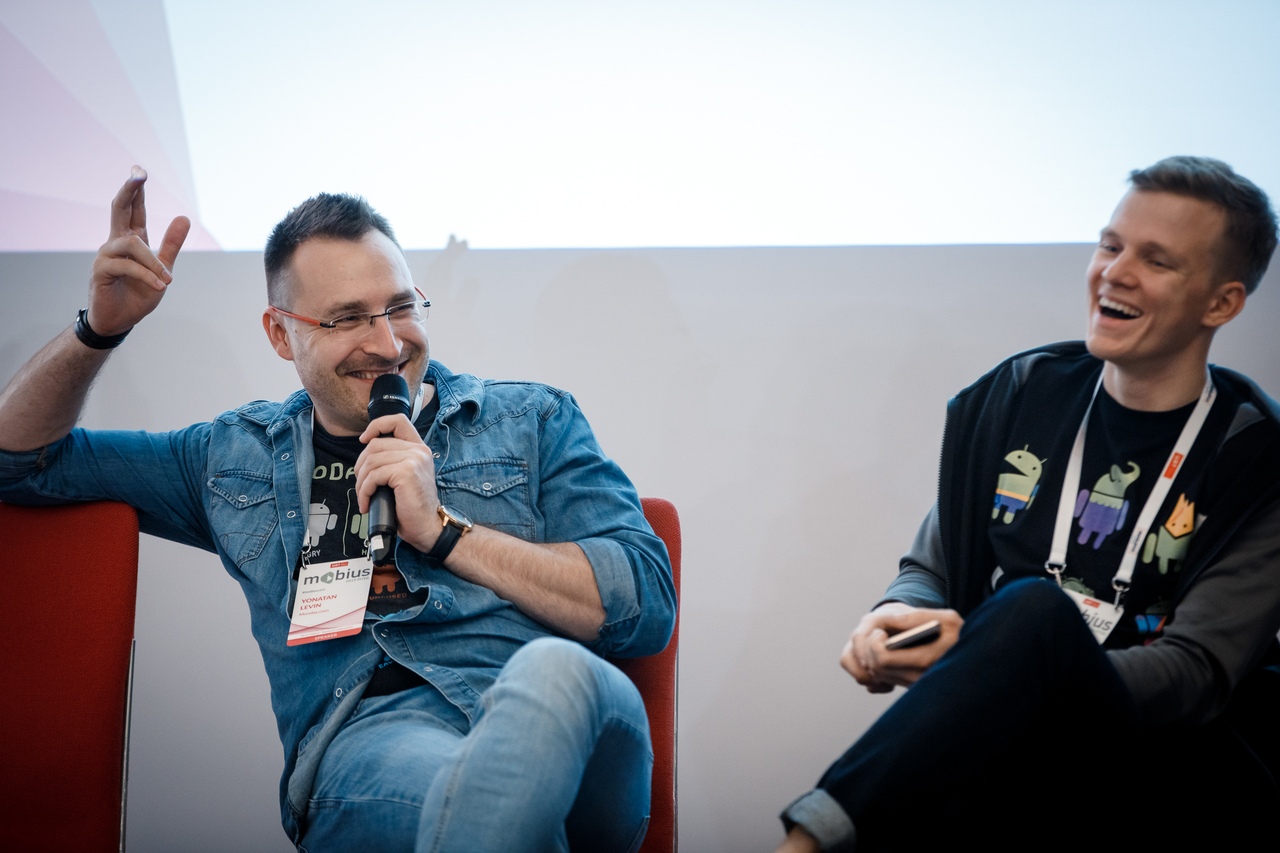
Here for people who were not present, we also draw one thesis: do not forget that there are not only salaries, but also options.
Of course, a lot of things happened at the stands. For example, the CFT company organized a contest “Klava, come on”: two participants had to complete a task together, and each part had only a part of the buttons on the keyboard. Pair programming has never been so complementary!
And stickers from CFT “came to life” if you look at them through a special application: where else to demonstrate mobile AR, if not at a conference on mobile development?
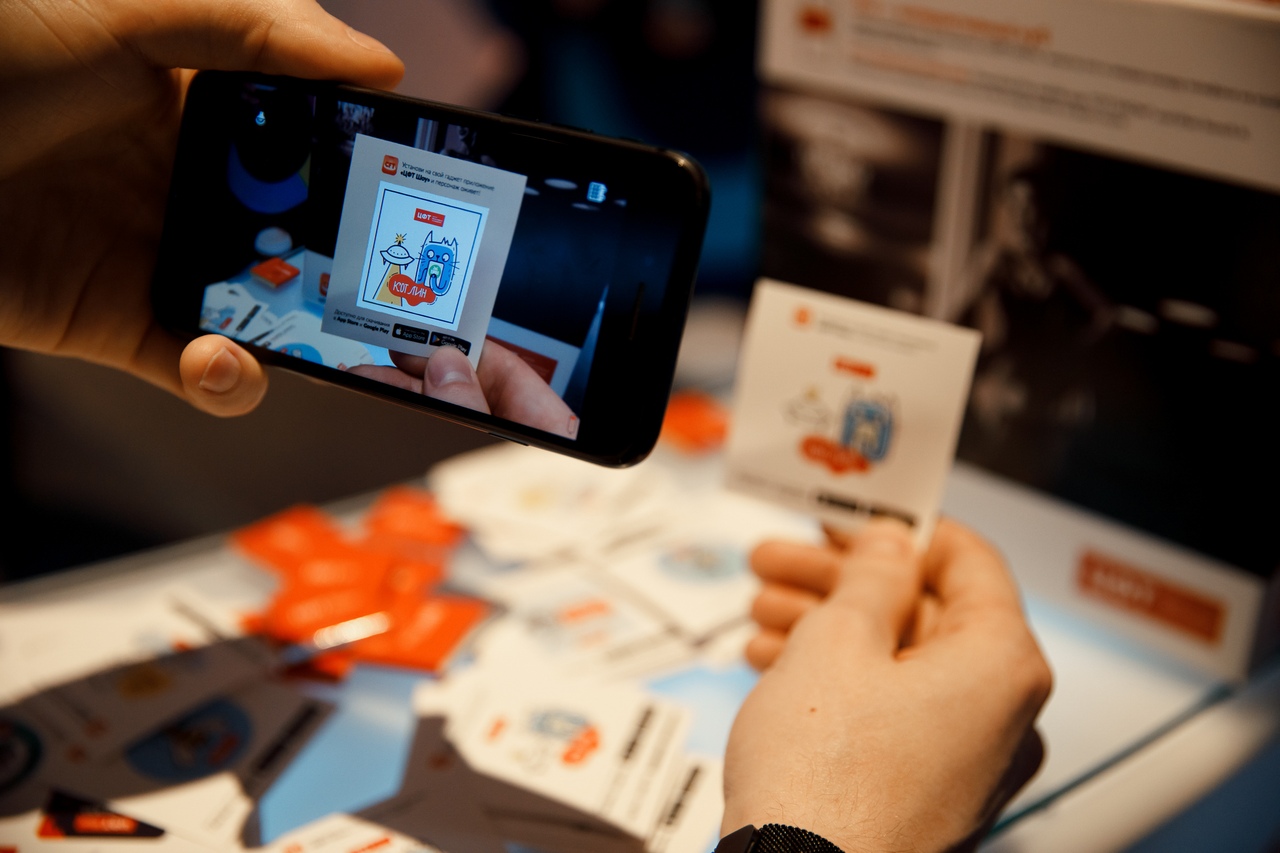
There were a number of other large companies (Sberbank, VKontakte, Alfa-Bank, Odnoklassniki and not only), and I would like to mention the VK stand especially.
Firstly, it was spectacularly designed. And secondly, the “battle between iOS and Android” (a blind interface layout contest) that was organized there attracted a lot of attention. It is curious that shortly after the conference, SwiftUI was presented - I wonder how much it will affect such competitions in the future.
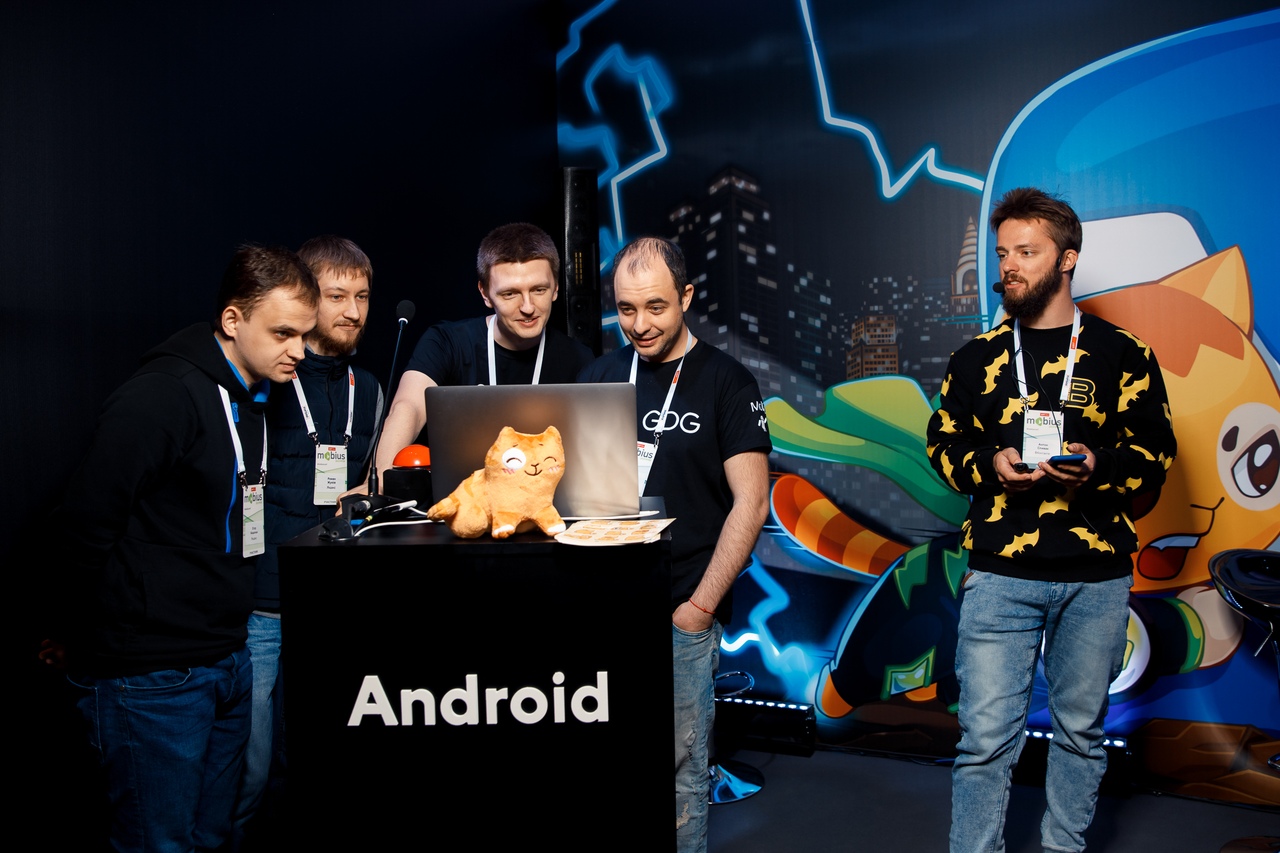
Another thing about Mobius was that it was more convenient to watch without being physically at the conference. So that in the online broadcast between the reports there was no half an hour of silence, we interviewed some speakers. Those on the second day went only to a paid broadcast. But an interview for the first day are available all on the same recording broadcast to YouTube (in the first comment from the viewer has a timecode, thanks to him).
And in addition to our broadcast, podcasters also recorded their releases on the site - from Android Dev Podcast to the same CFT .
Next mobius
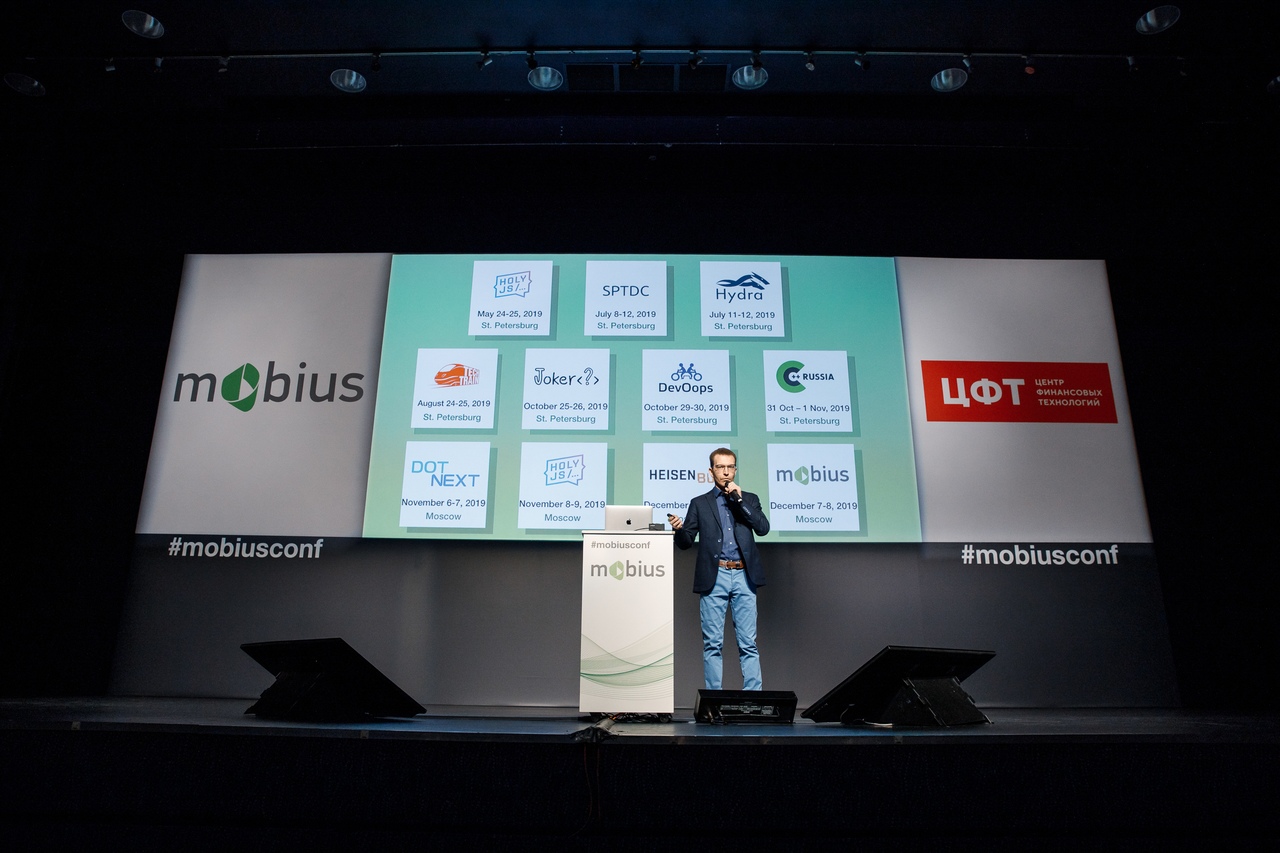
On this, the results can be considered summed up. What's next?
Firstly, Mobius 2019 Moscow has specific dates: December 7-8 .
Secondly, there in general one should expect the same as described above. Technical reports and live BoF sessions, activity on stands and interviews in online broadcasts - the format of the conference will be the same.
Thirdly, if you watched the open broadcastthe last Mobius, they could notice some bias: either Android reports or multi-platform ones (without iOS-specific ones) got there. Indeed, at the last Mobius reports and well-known speakers from the Android world, we got a little more. But this does not mean that we do not care about iOS - it just so happened that with iOS-speakers everything is more complicated. So we will try to ensure that in the future at the conference it will be interesting to all mobile developers, regardless of platform.
Fourth, we are ready to announce the first names of the Mobius 2019 Moscow speakers. One of them is Vitaly Fridman : since everyone liked his St. Petersburg performance so much, Moscow will not be left without him. And besides him, the co-founders of the Halide project will be with a joint report: Ben Sandofsky andSebastiaan de Wies (tens of thousands of people follow on Twitter: @sdw , @sandofsky ). Halide is a photo app for iOS, so, as you can see, we have already taken up the Apple side.
Fifth, if you are interested in not only listening, but also speaking, now is the time to submit your application for a report . For example, we would be interested in a detailed analysis of something presented on Google I / O or WWDC (except for Jetpack Compose, this niche is already taken). But in general, everything that can be useful for mobile developers is interesting.
And sixth, tickets are already on sale , and they traditionally become more expensive over time. So, although you can wait for a more complete program, it is more profitable to purchase them now.
See you in Moscow!
